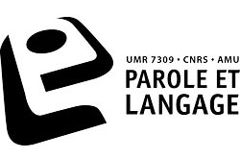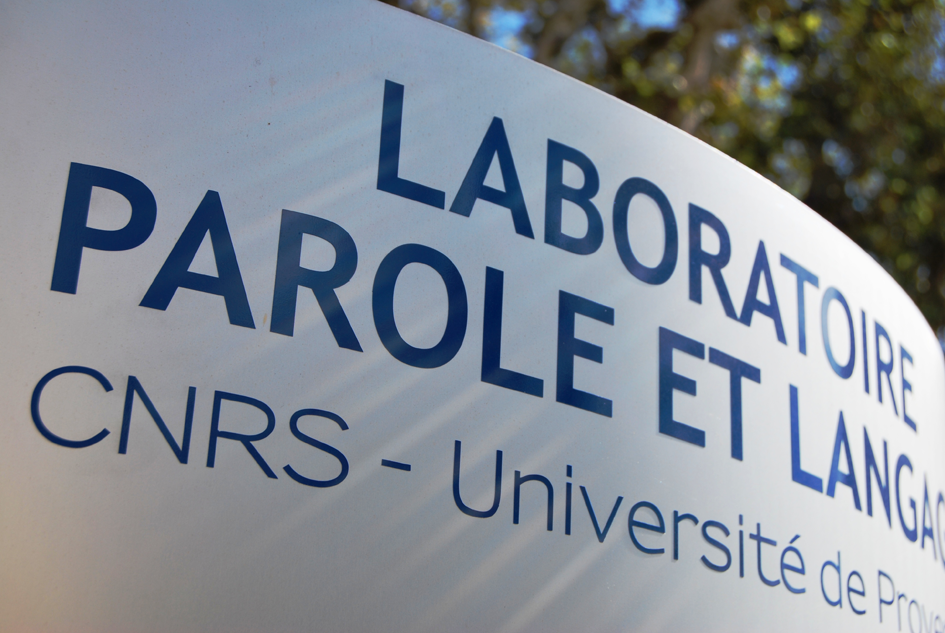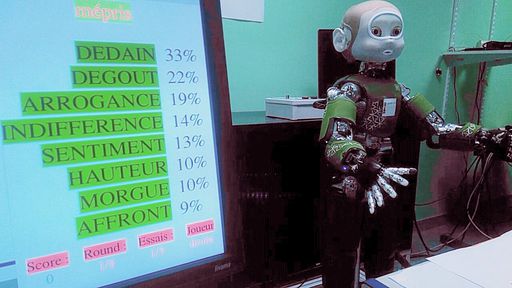Catégorie d'événements: Seminar
Seminar of Clément François
Seminar Thibault Cattelain
Research team seminar: REaDY & Interactions
Seminar Pierre Lison
Modélisation du dialogue: contrôle du dialogue et corpus multilingues (seminar held in French)
Pierre Lison (Norwegian Computing Center)
Wednesday May 22, 10:00
Laboratoire Parole et Langage
In the framework of PHC Aurora.
Contact at the lab: Laurent Prévot
Seminar Lina Maria Rojas Barahona
A glance through Conversational agents
Wednesday May 22 11:30
Lina Maria Rojas Barahona, Orange Labs, Lannion
Conversational agents are once and again gaining great interest from academics and industrials. The availability of big data as well as the advances in processing units have made deep learning approaches feasible and promising, reviving the dream of creating artificial agents that can easily converse to people. Several solutions have been proposed since the first psychoanalyst chatbot (1966). From regular expressions and symbolic approaches (formal grammars and formal logics) to statistical approaches (probabilistic models and data-driven techniques, e.g. machine learning or deep learning). We have already obtained promising results. For instance, we know that machines can learn optimal strategies for simple tasks in small domains (task-oriented dialogue systems). Moreover, we are treating open domain dialogues by asking questions to online encyclopedias such as Wikipedia (conversational reading comprehension) and we are able to predict the best answer in chitchats (end to end neural approaches). In this talk I will review briefly the state of the art and highlight the open research problems on conversational agents.
Contact at the lab: Noël Nguyen
Seminar about the Robot-Trio project
Seminar and discussion about the Robot-Trio project (PEPS CNRS)
Friday May 10, 2019, 10-11 a.m.
LPL, conference room B011
Contact: Laurent Prévot
Inter-team seminar SystUS & REaDY : On units of linguistic segmentation
Next Inter-team seminar at the LPL
SystUS – REaDY : On units of linguistic segmentation
Program :
9h30 Ouverture
9h40 Sophie Dufour : Le phonème comme unité de segmentation pré-lexicale
9h50 Cyril Aslanov : Du polysyllabisme au monosyllabisme : la restructuration syllabique au contact entre langues indo-européennes et langues isolantes à travers l’exemple de la convergence du tokharien vers le tibétain
10h00 Chotiga Pattamadilok : Le rôle de l’acquisition de la lecture sur la capacité de segmentation des stimuli langagiers et non-langagiers
10h10 Laurent Prévot : About Conversational and Discourse Markers
10h20 Pauline Welby : Les perturbations segmentales perturbent-elles la segmentation ?
10h30 Discussion générale
10h50 Pause-café
11h10 Cristel Portes : La structure informationnelle et la partition de l’énoncé
11h20 Clément François : De la perception de la parole chez le bébé à l’acquisition du vocabulaire chez l’enfant, approche neurolinguistique
11h30 Frédéric Sabio : Décrire les relations grammaticales : à partir du verbe ? A partir de la phrase ?
11h40 Marie-Charlotte Cuartero : Les disfluences au sein des chunks morphosyntaxiques dans la Dystonie généralisée isolée
11h50 Discussion générale
12h10 Clôture
LCT Seminar : Homa Lessan Pezechki
As part of this year’s LCT seminar, which will be dedicated to “Priorities: Linguistic and Sociolinguistic Aspects”, we will welcome
Thursday 28 February at 4 p.m. (room E 206, campus Schuman)
Homa Lessan Pezechki (AMU, IREMAM)
Hiérarchie des langues et des registres dans l’aire persane
Contact : Sylvie Wharton
Seminar Virginie André
Seminar of Virginie André (Université de Lorraine et laboratoire ATILF)
March 1st 2019, 10 a.m. – 12 a.m., room B006, building Egger, Campus Schumann, Aix-en-Provence
Title : Analyse sociolinguistique des interactions verbales et didactique de l’oral en FLE [seminar in French]
Abstract (in French):
La complexité des interactions verbales demande de faire appel à une approche sociolinguistique pour les analyser. En effet, les différents éléments de la situation de communication s’imbriquent et orientent, influencent ou conditionnent les pratiques langagières ainsi que les activités langagières actualisées en interaction. Dans un premier temps, nous proposerons un cadre d’analyse qui permet d’examiner au mieux l’ensemble des facteurs qui pèsent sur le déroulement et la forme des interactions. Nous appréhenderons également les différentes façons mises en œuvre par les locuteurs pour co-construire leur discours et nous analyserons quelques traces de cette collaboration. Dans un second temps, nous présenterons des applications de cette approche et nous expliquerons les avantages de l’exploitation de l’analyse sociolinguistique des interactions verbales à des fins didactiques. Nous présenterons des propositions d’exploitation de nos analyses socio-interactionnelles à des fins d’enseignement et d’apprentissage du Français Langue Étrangère (FLE). Nous illustrerons ces propositions avec des exemples d’expérimentations réalisées auprès de différents publics d’apprenants et en collaboration avec différents enseignants de FLE.













